‘A Dream Come True’: Remembering Ronnie Spector, 1943-2022
Darlene Love, her fellow “Wall of Sound” singing sister, perhaps expressed it best Wednesday night upon learning of Ronnie Spector’s death: “I’m in total shock! Did not see this one coming. Please give me time to process my thoughts to give Ronnie the proper tribute she deserves.”
Late Wednesday afternoon, breaking news alerts from ABC News, CNN, the New York Times, NBC News, USA Today, the Associated Press, the Daily Mail and other news outlets filled phone screens across the country: Ronnie Spector was dead at age 78 after a brief bout with cancer.
In 1963, a singer then named Veronica Bennett, a mixed race kid who used to get called “skinny yellow horse,” growing up in “one of the toughest schools in Harlem,” along with her sister Estelle and cousin Nedra as The Ronettes, turned America on its ear when the Phil Spector-produced “Be My Baby” first hit the airwaves. Ronnie’s sweet, sultry vibrato and Spector’s kitchen sink production seemed to be a match made in mono musical heaven. The girl group’s subsequent singles, “Baby I Love You,” “(The Best Part of )Breaking Up,” “Do I Love You?” and “So Young” served as transistor radio teenage symphonies for the Kennedy years in America.
The Ronettes’ live shows, brimming with rock n roll toughness, gobs of mascara, tight miniskirts, big hair and bigger voices forever changed the image of women in the music business. This wasn’t cute little Connie Francis or the party dress-refined Shirelles. The Ronettes were the bad girls of rock n roll. And America loved them.
“The Ronettes did have a part in some of the things women can do today in the music business and I’m proud of that,” Ronnie Spector told me in a 1992 interview. “I see the sexuality of the Ronettes when I see Madonna, for example.”
When I used the word “legend” to describe her, Spector giggled and explained that the legend stuff is easy. It was the day to day attempts at living and breathing that take some skill. “Yeah, I’m a real survivor,” she told me. “I never knew what an accomplishment that was until I started looking around me for the other performers I worked with in the ‘60s and they’re not there anymore.”
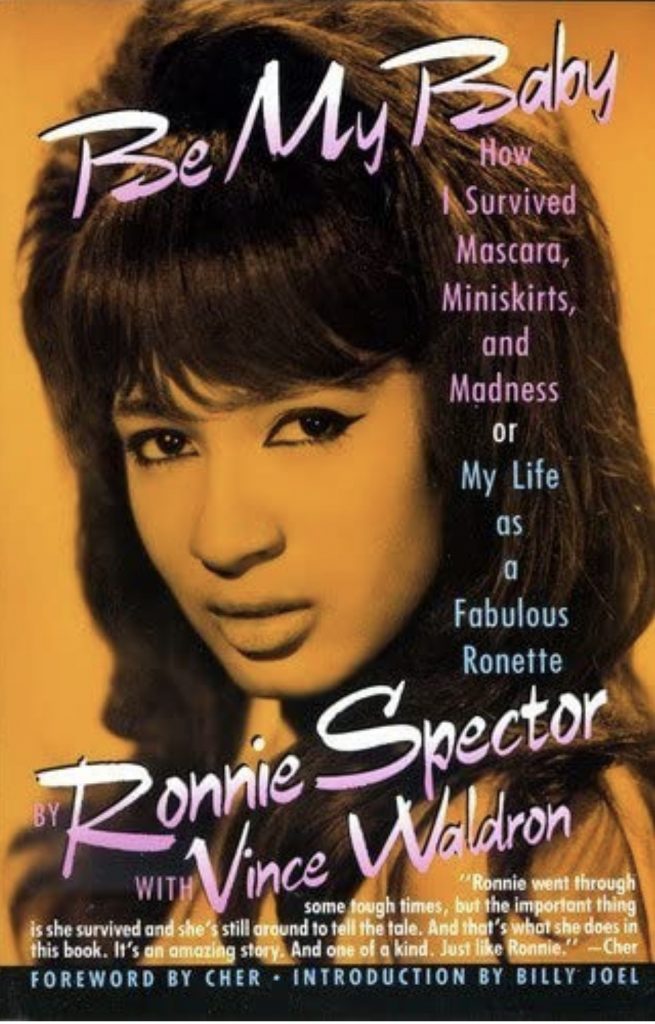
In her riveting 1990 memoir “Be My Baby: How I Survived Mascara, Miniskirts and Madness or My Life as a Fabulous Ronette,” Spector took readers behind the scenes of her biggest hits as she was falling in love with the group’s producer and her eventual husband Phil Spector.
Recalling recording at Gold Star Studios in Los Angeles as a teenager, Spector wrote: “It took about three days to record my vocals for ‘Be My Baby.’ I was so shy that I’d do all my vocal rehearsals in the studios’ ladies room, because I loved the sound I got in there. People talk about how great the echo chamber was at Gold Star but they never heard the sound in the ladies room. And, between doing my make-up and teasing my hair, I practically lived in there. So that’s where all the little ‘whoa-ohs’ and ‘oh-oh-oh-ohs’ you hear on my records were born — in the bathroom at Gold Star.”
In contrast to the days spent working on “Be My Baby,” Spector nailed the vocal to “Walking in the Rain” in a single take. When she put on the headphones, Phil Spector had a surprise awaiting her: he had mixed the sound of a thunderstorm into the song’s intro. “It was absolutely perfect,” she remembered in “Be My Baby.” “I thought I’d just do a rough take to get a feel for the song but I was really into it and sang it all the way through. When I finished, Phil’s voice came out over the speaker: ‘That’s the one. We can go home now.’ And when I heard it played back, I had to agree with Phil. And that’s the take you hear on the record today.”
Out of the studio, the singer’s relationship with Spector was far less harmonious. In her memoir, eerily foreshadowing Phil Spector’s 2003 murder of actress Lana Clarkson at his home, Ronnie writes about being held captive for years at the couple’s Los Angeles mansion. On June 12, 1972, after a drunken Spector threatened to kill her and her mother and described the coffin he would bury her in, the singer, barefoot (Spector retained custody of one of her shoes at all times), went for a walk on the grounds with her mother. They ran for the front gates and didn’t look back.
“I’d just spent five years living like a millionaire in a 23-room mansion and I felt helpless the whole time,” she wrote. “Now, here I was standing on the corner of Sunset and Doheny, barefoot and without a penny to my name, and I’d never felt stronger in my life.”
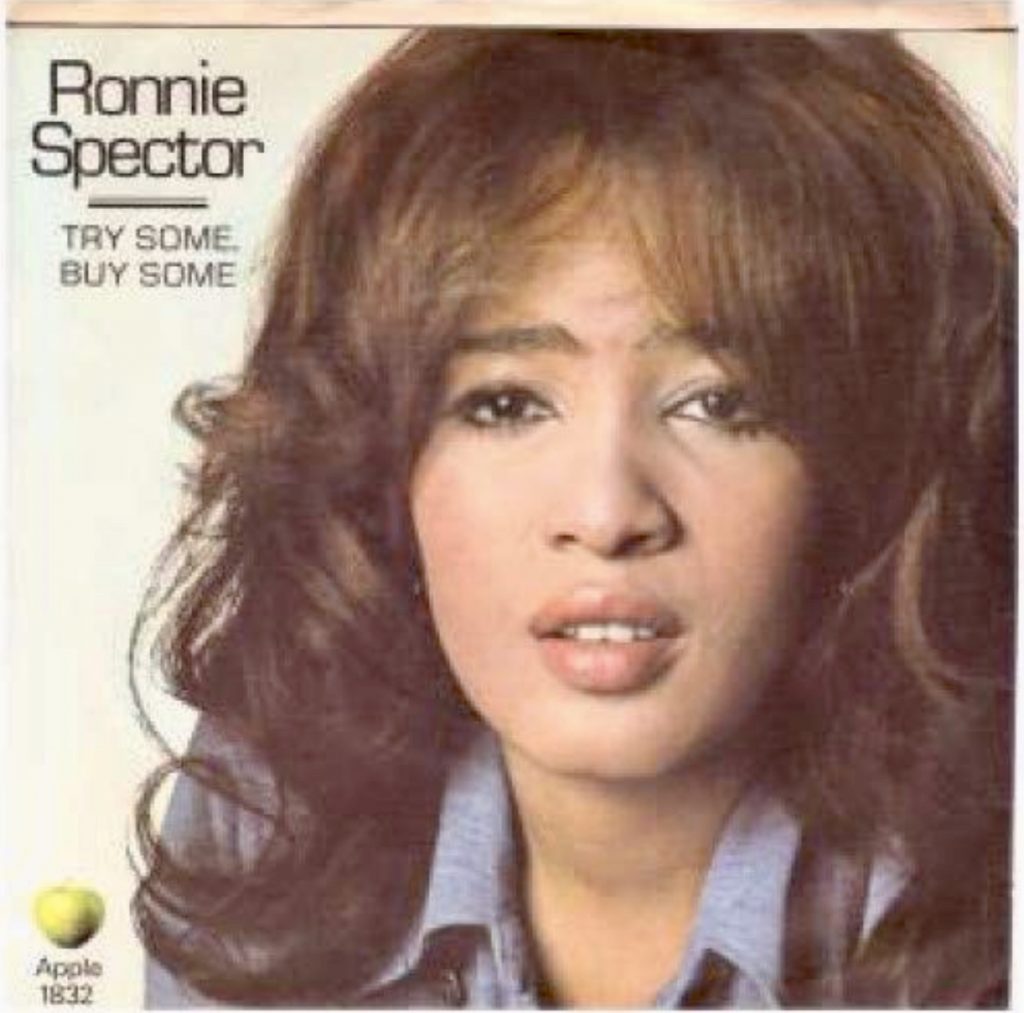
Throughout the 1970s, like Tina Turner, who also escaped an abusive marriage and reinvented herself, Spector returned to the studio with some help from some famous fans. George Harrison gave her his song “Try Some, Buy Some” and put out the single on the Beatle’s Apple record label. Billy Joel gave her his “Say Goodbye to Hollywood,” his tribute to the Ronettes sound and she recorded it with Bruce Springsteen and the E Street Band.
In 1980, at New York City’s Electric Lady Studios, Spector recorded the stripped down rock album “Siren,” produced by Ronettes fan Genya Ravan, the lead vocalist of one the first all-girl rock acts, Goldie and the Gingerbreads. Between recording sessions, Spector fell in love with Jonathan Greenfield, her second husband, who would manage her career for the rest of her life. The couple would have two children together, Austin and Jason.
In 1986, when Eddie Money was recording “Take Me Home Tonight” with Motels vocalist Martha Davis weaving in Ronnie’s signature “be my little baby’s” into the song, Davis suggested to Money that he hire the real deal. He did and the hit ended up introducing Spector to the MTV generation.
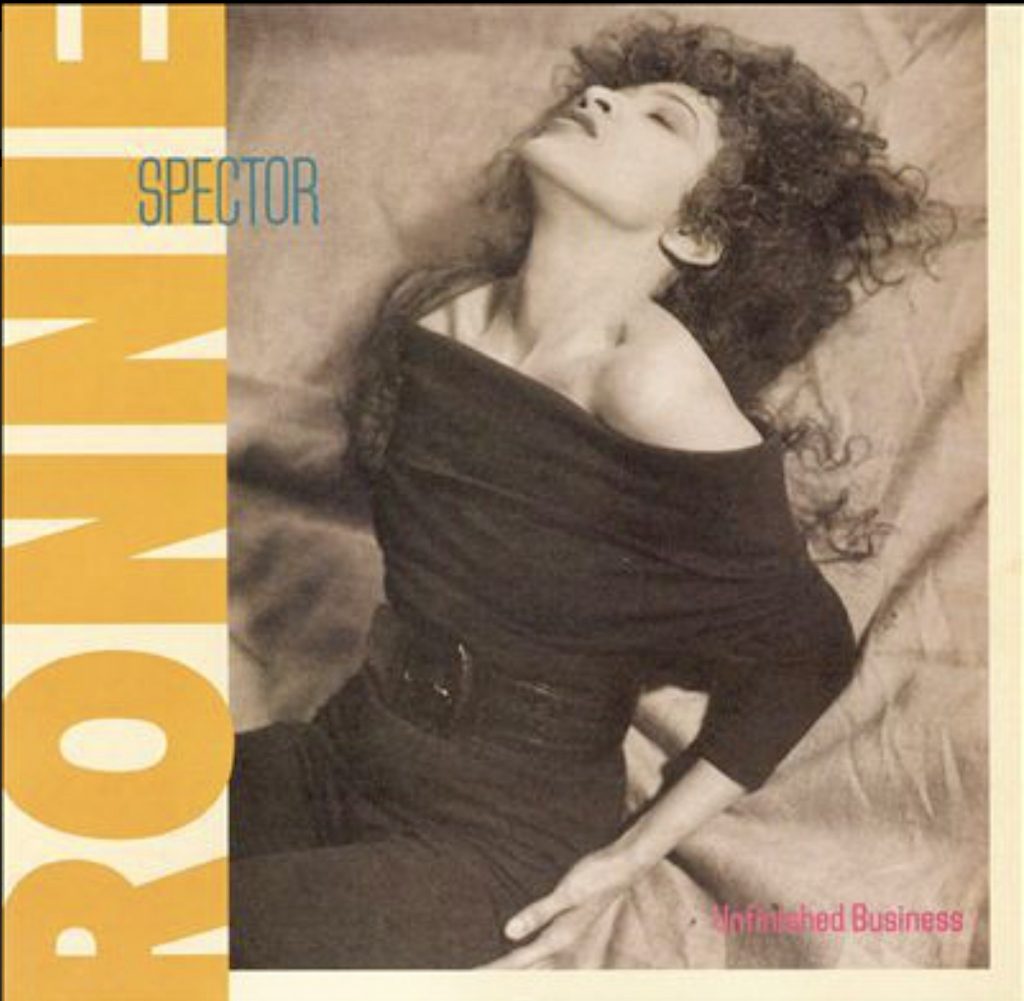
When his label, Columbia Records signed Spector to a deal that birthed her 1987 album “Unfinished Business,” Money returned the favor by contributing vocals to the LP’s first single, “Who Can Sleep?” The Bangles’ Susanna Hoffs, also a huge fan, provided backup vocals on the album’s “Dangerous” while Spector pal and “Late Night With David Letterman” musical director Paul Shaffer and members of his band also played on the project.
Around the same time, after publicly revealing she and her fellow Ronettes were paid less than $15,000 when they signed with Spector’s Philles Records, and had received no additional royalties in the decades after recording iconic hits and an appearing on 1963’s equally iconic “A Christmas Gift for You From Phil Spector,” the group sued their former producer. Decades later, the group was awarded $2.6 million but the decision was overturned on appeal.
In 2007, Ronnie, Estelle and Nedra reunited onstage for the first time in 41 years as their old friend, Rolling Stones guitarist Keith Richards inducted the Ronettes into the Rock n Roll Hall of Fame.
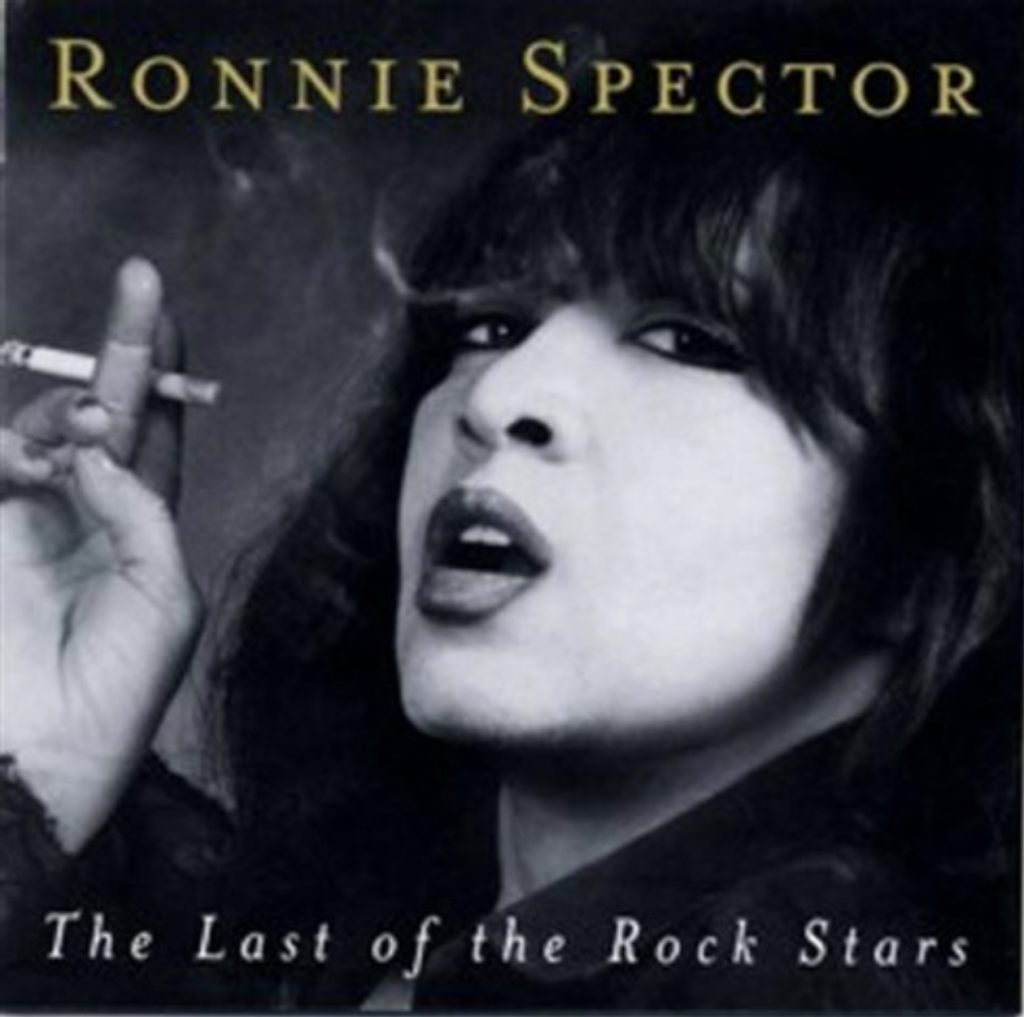
In 2009, just after her ex-husband was convicted of murdering actress Lana Clarkson, Spector released her penultimate album, “The Last of the Rock Stars.” For the first time on the autobiographical track, “Girl From the Ghetto,” the singer publicly addressed what Phil Spector had put her through over the years. Atop buzzing electric guitars, Spector sings: “Girl from the ghetto like me/Spanish Harlem/For all the things you said I’d never do/For all the things you said that were untrue/For the all the times you made me feel alone/Said I’d never make it on my own/Things are looking up for me now/Seems like karma is making its rounds/It’s my turn now/Won’t be held down, no/I hope your hell is filled with magazines/And on every page you see a big picture of me/And under every picture the caption should read/‘Not bad for a girl from the ghetto like me’/Tried to make me feel weak/So you could feel stronger/All the times you tried to hurt my pride/All the things I had to keep inside/But I’m right here, baby.”
In the final minute of the track, filled with her trademark ‘Oh-oh-oh-ohs,” the singer opted to improvise the final lines: “I hope your cell is filled with magazines/And on every page you see a big picture of me/Girl from Spanish Harlem.”
Yet, when the record producer died in prison at age 81 a year ago on Jan. 16, 2021, the singer took to her Facebook page to post this tribute: “It’s a sad day for music and a sad day for me…Meeting him and falling in love was like a fairytale. The magical music we were able to make together was inspired by our love. I loved him madly and gave my heart and soul to him. Unfortunately, Phil was not able to live and function outside of the recording studio. Darkness set in and many lives were damaged. I still smile whenever I hear the music we made together and always will. The music will be forever.”
In what would be her final months, Ronnie Spector communicated often with fans on her official Facebook page. In June 2021, the longtime LGBTQ+ ally wrote: “Happy Pride Month! Besides my family, the first fans the Ronettes ever had were gay. I guess they liked us because we were outsiders, mixed race, no one knew what we were. They supported us from the beginning, followed us and still do to this day. Accept and respect people who are different from you. Let’s bring more understanding, love and compassion to this world.”
The singer celebrated what would be her final birthday on August 10 by posting a selfie with a fan, standing in front of a row of cough drops snapped at a drug store: “Wow, another birthday in the books! If I could have one birthday wish, it would be for us to be kinder to each other. If someone is not smiling, give them yours! I always have my lipstick on and am ready in case someone comes up to me while I’m shopping and asks, ‘Ronnie, can I take a selfie with you?’ It makes me feel good to make them feel good.”
And in December, 58 holiday seasons after the Phil Spector Christmas album stiffed in stores when it was first released the same week as JFK’s assassination in 1963, the Ronettes finally hit the Billboard Top Ten with “Sleigh Ride” (ironically, Mariah Carey’s currently omnipresent “All I Want For Christmas” borrows much of its production values from the Ronettes’ seasonal song). Sharing the news on Facebook, Ronnie wrote: “Wow, we are finally back in the Top Ten after 58 years. Did you miss us?”
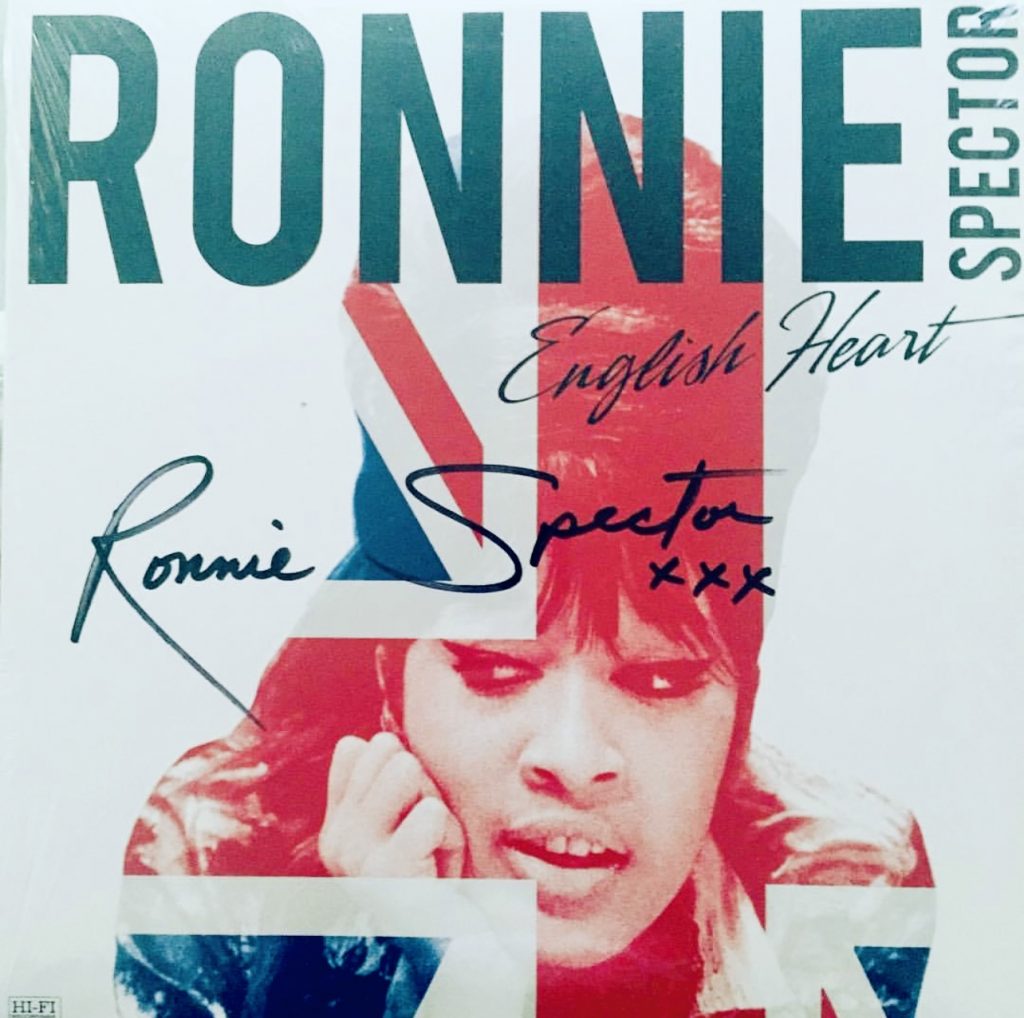
Over the years, unfortunately for the singer’s Atlanta fans, concert appearances here were rare. In the summer of 1992, on a 1960s oldies bill with The Turtles and Flo and Eddie, Spector performed with the Atlanta Symphony Orchestra at Chastain Park amphitheater.
In December 2005, Spector returned to Atlanta for what would be one of her final performances here — a Christmas show at The EARL in East Atlanta. The concert served as the ninth anniversary party for the now-shuttered music zine Stomp & Stammer. The show was booked after S&S publisher Jeff Clark ended up on a Euclid Avenue Yacht Club bar stool next to Nashville Pussy producer Daniel Rey, who was in town working on a new record with the act. Turns out, Rey doubled as Spector’s guitarist. And yes, the singer was available for the anniversary gig and was almost affordable. Clark told me at the time, “I’m totally blowing the budget and then some. At best, I’ll break even, but I don’t care.”
On Dec. 10, 2005, in front of a cheering crowd in a concert space roughly the size of a basement rec room, there was a beaming Ronnie Spector, shimmying across the postage stamp sized stage, performing all of her hits, including the Ronettes’ songs from the Spector Christmas album. As Creative Loafing later chronicled the evening, Spector memorably opened her set by saying, “All these rap artists shout, ‘Put your hands in the air like you just don’t care!’ If I hear that again, I think I’ll puke. When I do a concert and people put their hands in the air, they’re doing it on their own!”
Off stage, Ronnie was no rock diva. At one point during the evening, she was spotted hanging out in the alley of The EARL smoking and laughing with her fans. In 1992, just before she hung up the phone with me from her home in Connecticut, I got her to pause and ponder her career’s impact for a moment.
Finally, she laughed and allowed, “If someone had told me decades ago that the records we were making would still be as popular today and that people would still love them as much, I would have said, ‘Oh come on, give me a break!’ But it’s really happening and I love it. It’s a dream come true.”
In honor of Ronnie Spector’s 60-year career, I’ve assembled some of her best recordings, from 1963 to 2016 on this Spotify playlist:

Richard L. Eldredge is the founder and editor in chief of Eldredge ATL. As a reporter for the Atlanta Journal-Constitution and Atlanta magazine, he has covered Atlanta since 1990.





'Unparalleled Joy': 'A Christmas Gift For You' at 60 - Eldredge Atlanta
December 23, 2023 @ 8:35 am
[…] her death at age 78 in 2022, Ronnie Spector toured on the power of the Ronettes’ three seasonal selections on the […]